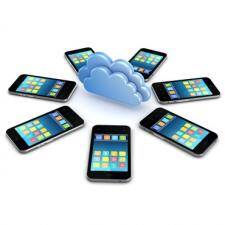Author: Mike Smitheman, VP of Marketing at GoodData

Author: Mike Smitheman, VP of Marketing at GoodData

These human errors may soon become things of the past, thanks to the evolution of big data, the cloud and mobility. In the not-too-distant future, mobile devices will have the data they need in order to send the right notifications, just when you need them, ranging from whether a client is nearby to how warm your home is.
The Big Data Cloud Rains Down Advice
By now, we’re all pretty familiar with big data, the process of gathering and analyzing massive amounts of information from mobile apps, portals, databases, social media, email and the like. So much big data is being stored in the cloud that it is poised to act as a kind of personal assistant for people using mobile devices.
Mobility is made possible in the first place by the fact that data is in the cloud. As the big data cloud grows, it is becoming possible for mobile devices to have ongoing conversations with the cloud, via streaming real-time access. Your mobile device feeds GPS data, sensor readings, event logs and other data into the big data cloud. The cloud runs that information against other data about your clients, your needs, schedule and priorities, and sends back suggestions that optimize the decisions you make. These pop up on your phone via “push” notifications.
A New Way of Thinking
The significance of the mobile-cloud-big data triad cannot be overstated. Rather than mining the Web for the information you need, it will curate and analyze that data for you. Instead of researching something for an hour in order to gain the conceptual understanding that helps you make a decision, your “personal assistant” will present the most crucial data to you, and you’ll have what you need to make a decision on the fly.
It’s a mental shift. We’re transferring the heavy lifting of data crunching and analysis to our technology, which can assess more data than we could dream of putting in a spreadsheet ourselves. Continually presented with the background information we need, we have the ability to make better decisions on a day-by-day, even an hour-by-hour basis. “I think I should check email 50 times in case I miss this one important message” becomes a push notification from the cloud when that one email does arrive.
The end result? More time for you to do what you want and what you’re good at, because you can trust the cloud to give you the right information when you need it. Maybe the next question should be: What are you going to do with all that newfound time?
image: shutterstock